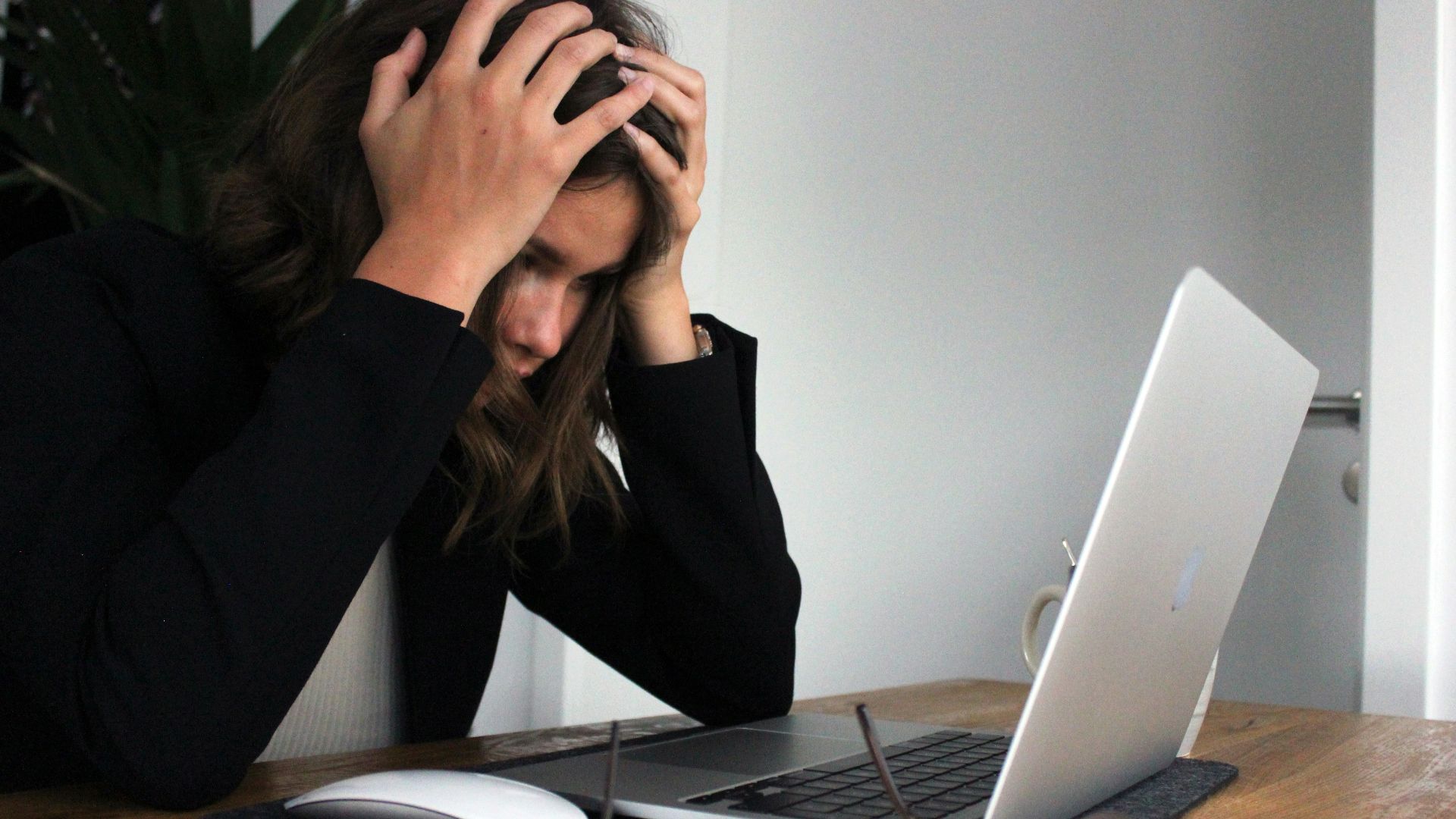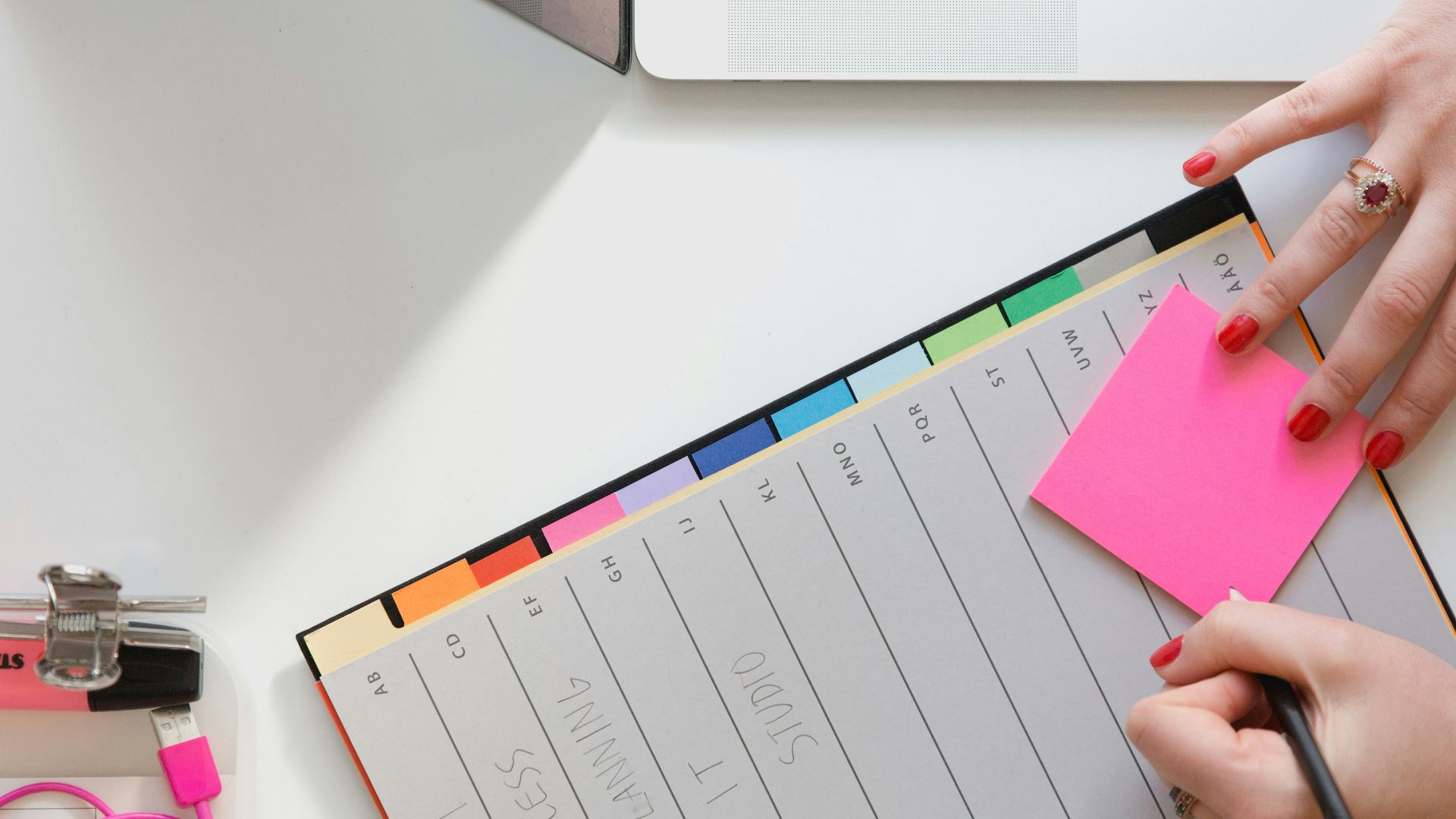Work Life Balance?
By now we've all heard how important it is to achieve a work life balance, but some jobs make that impossible. From far too many hours to forced overtime to taxing manual labor. It's important to identify where your job is failing you so you can address it, or perhaps find new employment.
1. Sitting Too Long
Prolonged sitting can lead to back, neck and hip pain. Inactivity weakens your muscles and causes circulation problems. You may feel lethargic and stiff. This can result in long-term pain and decreased range of motion.
 LinkedIn Sales Solutions on Unsplash
LinkedIn Sales Solutions on Unsplash
2. Stressing Over Everything
Constant stress causes your body to remain tense and reactive. This may lead to headaches, stomach problems and sleeplessness. You may get aggravated over minor things. Chronic stress can sap your energy and leave you feeling worn down.
3. Eating Little Or Nothing
When you skip meals you starve your body of fuel. You might feel dizzy, cranky, or unfocused. Long term this can slow down your metabolism and weaken your immune system, because our bodies need consistent nourishment to stay healthy.
4. Caffeine Reliance
Over-dependence on caffeine can mess with your body's natural energy cycles. It may cause an initial spike, but typically results in crashes. Excessive caffeine can also lead to jitteriness and sleep disturbances. This cycle can make you feel more fatigued than initially.
5. Creativity Loss
Routine can be a mental prison. Doing the same thing day after day your mind can start to feel stale. Creativity requires space to breathe. Without space it can feel as if you are drifting away from your ideas and interests.
6. Lack Of Mental Stimulation
Without a proper challenge, your brain can start to feel the lack of stimulation. You may feel bored or mentally blocked. With no new information or problem solving, the mind can become dull, which can have an impact on your memory, attention and self-confidence.
7. Mental Fatigue
Mental fatigue occurs when your brain is overworked and not given a break. You might have trouble focusing on even simple tasks. Little decisions can seem overwhelming, making work seem more difficult than it is.
8. No Energy For Recreation
You may be too tired to pursue hobbies after a long day at work. This deprives you of stress relieving and enjoyable activities. Without recreation your life becomes solely work and rest. You may feel empty and exhausted as a result.
9. Motivation Loss
When you're depleted from work, it's easy to feel unmotivated. Work seems more laborious and less purposeful. Your enthusiasm for your goals begins to dwindle. This impacts your work life as well as your personal life.
10. Depression
Chronic stress, isolation and fatigue can bring you to the brink of depression. You can feel distant from yourself and from others. Everyday tasks may be more difficult to begin or complete. Without support or change, your mood can continue to deteriorate.
Now that we talked about how work is negatively impacting your life, here are 10 ways to fix it.
1. Stand Up And Walk Around
Short walking breaks are important to keep your body moving. They help with circulation, as well as preventing stiffness. Walking can also clear your head. Just a few minutes can have a positive effect.
2. Pack A Healthy Lunch
Being smart about what you pack for lunch can ensure you stay properly fueled. Pick foods that improve your focus and energy, while trying your best to avoid the easy way out by getting a fast food option instead. A healthy lunch keeps you from crashing in the afternoon, while also ensuring you won't miss a meal if things get busy.
3. Use Downtime Wisely
Micro pauses give you a chance to breathe, stretch or regroup. They allow you to remain calm and centered. If you utilize the time well, your stress reduces and you re-enter the flow with a clearer head.
4. Don’t Stress Little Things
Letting go of small things is good for your sanity. Not every annoyance is worth your precious energy. Focusing on what is important keeps you calmer and more productive, making your day more peaceful.
5. Find A Hobby
Although it might be hard to find energy and motivation, a hobby is something enjoyable to anticipate. It engages your mind and relaxes you. Creative or physical pursuits can offset work stress. Hobbies also provide a reminder that life is larger than your job.
6. Work Doesn’t Define You
Your worth is not your job title or to-do list. You are a complete person, with hobbies, relationships, and goals. Keep that in mind, and you will feel less pressure and more confidence, while also building a better, more balanced relationship with work.
 Cytonn Photography on Unsplash
Cytonn Photography on Unsplash
7. Talk About Problems
Sharing your problems can help you feel supported. Talking can help you work through emotions and seek solutions. Bottling things up can increase stress, and even though it might be hard, communication or even professional help may boost your mental and emotional health.
 Christina @ wocintechchat.com on Unsplash
Christina @ wocintechchat.com on Unsplash
8. Work Is Not Life
Life is not only your job or title, it is also and more importantly family, friends, hobbies, and rest. When you set limits you safeguard your welfare. Work is important, but it should not consume you. Balance creates more happiness and health in your life.
9. Make Little Challenges
Tiny challenges can keep your brain engaged and on its toes. They can give you a feeling of moving forward and getting better. Small goals can add a little thrill to everyday life. These challenges can remind you that you can always grow.
10. Listen To Music
Music can brighten your day and relax your thoughts. It makes the environment around you enjoyable. Listening to your favorite songs can help you to be less stressed at work in a simple way that incorporates comfort and positivity.

























